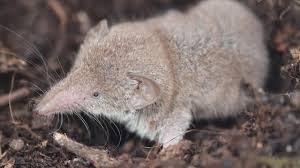Henipavirus

- 05 Feb 2025
In News:
A henipavirus, specifically the Camp Hill virus, has been detected in North America for the first time. This discovery in northern short-tailed shrews—a small mammal species found commonly in Canada and the U.S.—raises concerns over a potential zoonotic disease outbreak.
About Henipavirus
- Virus Type: Henipaviruses are zoonotic, negative-sense RNA viruses.
- Family: Paramyxoviridae.
- Natural Hosts: Pteropid fruit bats (commonly known as flying foxes).
- Other Hosts: Capable of infecting various mammals, including humans, horses, pigs, and shrews.
Notable Henipaviruses:
- Hendra virus (HeV):
- First identified in Australia.
- Mortality rate: Up to 70%.
- Nipah virus (NiV):
- Found in Southeast Asia, including Malaysia and Bangladesh.
- Case fatality rate ranges from 40% to 75%, depending on surveillance and clinical care.
Symptoms and Disease Progression
- Initial symptoms: Fever, dizziness, headache, and muscle pain (myalgias).
- Advanced symptoms: Respiratory issues, encephalitis (brain inflammation), confusion, abnormal reflexes, seizures, and coma.
- Relapsing encephalitis may occur months or years after apparent recovery.
- Fatality Risk: High, primarily due to encephalitis and multi-organ failure caused by damage to small blood vessels (microinfarction) in organs like the brain, liver, and kidney.
Why are Henipaviruses so dangerous?
- Henipaviruses produce proteins that:
- Suppress the innate immune system.
- Block interferon-stimulated antiviral responses, aiding viral replication.
- Act as virulence factors, allowing widespread infection and severe outcomes.
Modes of Transmission
- Animal-to-human:
- Direct contact with infected animals (e.g., fruit bats, pigs, horses, shrews).
- Consumption of contaminated food or water (e.g., raw date palm sap in Nipah outbreaks).
- Human-to-human: Via bodily fluids, close contact, or respiratory droplets during caregiving.
Treatment and Prevention
- Treatment:
- No specific vaccine or antiviral currently exists.
- Management is symptomatic and supportive (respiratory support, ICU care).
- Prevention:
- Vaccination of horses (in HeV-risk regions like Australia).
- Avoiding contact with fruit bats and sick animals.
- Isolating infected individuals and animals to prevent spread.
